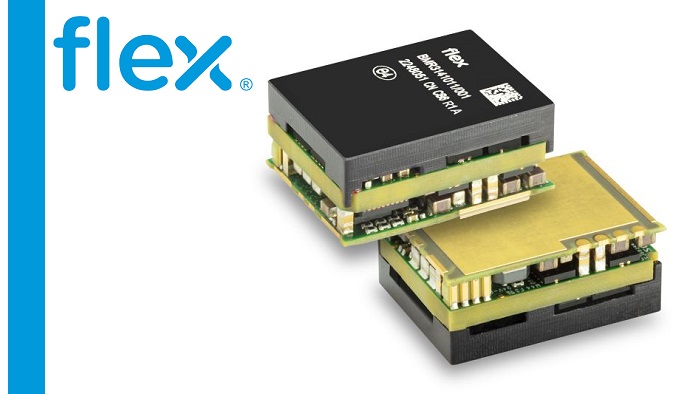Flex Power Modules recently introduced new Digital Intermediate Bus Converters (IBCs) designed for artificial intelligence (AI) applications in data centers. These new IBC products are designed to improve operational efficiency and design flexibility while supporting the Open Compute Project's (OCP) goals of reducing energy consumption and improving the design of data center power architectures, including support for greater power density per rack.
As the energy demands for AI applications continue to increase, data centers need more efficient power solutions to meet these demands. Flex Power Modules' digital intermediate bus converters help minimize energy losses and ensure that power is delivered to servers in the most efficient way possible by optimizing power distribution and energy efficiency. The extremely high rack power density of AI training servers can create additional challenges for operators of data centers, especially when it comes to cooling. To cope with the demand for high-density servers brought about by AI, data centers need new methods of cooling. Flex Power Modules' products may support the transition from air cooling to liquid cooling, which is a necessary solution to address the effectiveness of AI clusters. Liquid cooling offers several advantages over air cooling, including improved processor reliability and performance, as well as higher thermal inertia.
Features of the new BMR321 IBC include:
Peak Power: Capable of delivering 750W continuous power and up to 1500W peak power.
Improved Efficiency: This DC/DC power converter achieves peak efficiency of over 98% while maintaining a compact size, and is OAM V2.0 compliant with the Open Compute Project (OCP) standard and measures 1.63 x 0.7 x 0.26 in (41.47 x 17.67 x 6.9 mm).

Figure: Flex Power unveils new converters for data centers (Source: FlexPower)
A new variant of the BMR320
In addition, Flex Power Modules has added a new variant of the BMR320 series, which has a continuous power rating of 400W, and the new variant will deliver up to 740W of peak power while maintaining the same compact size. This provides a versatile option for applications that require lower power output in a smaller package, while still benefiting from Flex Power Modules' advanced power conversion technology. If required, up to three BMR320 variants can be connected in parallel to provide scalable power output to meet different system needs.
Upcoming BMR323
Flex Power Modules also plans to launch the BMR323 in early 2025, an upcoming variant that will maintain the same form factor as the BMR320 while offering higher sequential and peak power capabilities. The BMR323 continues Flex Power Modules' legacy of innovation and efficiency to meet the growing demands of next-generation data centers.
All of these products are supported by Flex Power Designer, a popular software tool that provides monitoring and configuration of key parameters via the PMBus® interface, ensuring optimal operation and flexibility.
These new IBC products demonstrate Flex Power Modules' ability to innovate in power conversion solutions, particularly in supporting the high power density and energy efficiency requirements of data center AI applications. With these products, Flex Power Modules not only provide efficient power conversion, but also support the data center's need for scalability and flexibility, which is critical to meeting the challenges of the data center in the AI era.






